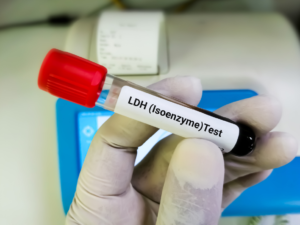When we talk about analytical tests in integrative medicine, we refer to those laboratory tests that help to detect different health problems, such as autoimmune diseases, thyroid problems, nutritional deficiencies and metabolic problems, among others.
Analyses are of great importance in integrative medicine. They are the first tests that doctors order and rely on to understand the cause of any health symptom, as well as to make diagnoses even when there are no symptoms, to indicate treatments, and to see the evolution. Analytical tests provide very valuable data, which allow us to determine the treatment methods for each person. Do you want to know more about the importance of analytical tests in integrative medicine? We tell you about it in this article.
Differences between conventional and integrative medicine
Do you know the difference between conventional medicine and integrative medicine? Conventional medicine uses laboratory tests to detect problems when they have already developed into diseases. This can be a big problem, because by the time a disease is detected, it may be too late to repair the damage. In conventional medicine, lab tests help doctors to appease symptoms and match lab values with pharmaceuticals, which means that treatment of the underlying problem is usually not indicated. It may also happen that if symptoms or test results do not meet a conventional diagnostic definition, doctors downplay the patient’s symptoms.
In contrast, integrative or functional medicine seeks to find the root cause of all symptoms, and evaluates the results from a holistic perspective. Laboratory tests in this type of medicine include a number of different tests, which seek to determine what specific problems are causing the symptoms. In addition, they seek to detect a symptom that is on its way to becoming a disease. This means that the disease can be reversed, slowed or stopped. For example, if a laboratory test shows impaired liver function, the possibility of liver cancer may be reversed. The series of labs performed in integrative medicine are more complex than the usual basic blood panel. That is, more in-depth tests are ordered to rule out other possibilities and to gain a broader understanding of the body’s problem and how best to treat it.
As previously mentioned, functional medicine takes a holistic view of the human body, with all its systems. Unlike conventional medicine, it does not treat each symptom individually, but sees it as a whole. Furthermore, it delves into the root cause of the problem and not just the symptom itself. In this way, many important issues can be revealed to reverse or improve the health problem.
Analytical tests in integrative medicine
Analytical tests provide data that are interpreted by doctors, and determine whether to move forward with disease prevention or treatment. The type of test a person needs depends on their symptoms and medical history. Tests are performed on blood, urine or saliva, depending on the doctor’s request. In turn, there are certain protocols to follow, such as respecting the fasting hours of the study, the time of day it has to be done, or the day of the menstrual cycle.
It is also worth mentioning that although the first test is very relevant to detect health problems, subsequent tests are key to understand the evolution, and to know if the treatment is effective. Otherwise, if there is no improvement, it is known that the indicated protocol has not been followed, or the underlying causes have not been discovered.
Another advantage of integrative medicine testing is that it supports the patient, as the results validate the patient’s symptoms. In addition, it also provides support to the people close to the patient with their health problem, since the fact that their symptoms are validated can help these people to be more understanding.
7 analytical tests in integrative medicine
Among the analytical tests that an integrative medicine doctor may order are the following:
- Chemical analysis of the blood. This is one of the first tests usually performed. The blood test detects existing diseases or the possible tendency to contract them. These tests can also uncover underlying nutritional deficiencies that may be contributing to symptoms or diseases.
- Chemical sensitivity and metal sensitivity testing. Type IV hypersensitivity, usually triggered by an immunological reaction to chemicals or metals, can be detected through a blood test.
- DNA genetic testing. Genetic testing is done to find variations in the body’s genes, chromosomes and proteins. In this way, genetic disorders and alterations in metabolism that may be causing (or may cause in the future) diseases can be detected.
- Food sensitivity testing. A chronic health disorder can be caused by the regular consumption of a food that causes inflammation. To detect it, various tests can be performed, ranging from blood tests to oral tolerance tests.
- Gut tests. These tests detect intestinal function, parasites, bacterial overgrowth, leaky gut and autoimmune reactions.
- Adrenal testing. Adrenal tests reveal the level of stress.
- Hormone tests. These tests detect excesses, deficiencies, feedback and metabolization of hormones.
As we could see throughout this blog post, functional laboratory tests are very important as they can help to get to the bottom of chronic health conditions.
Contact us if you have any questions and visit our blog to keep up to date with all the latest news from the clinical field. At Ambar Lab we offer more than 3,000 laboratory tests, business management support and new project development. We work to ensure that our wide and growing catalogue of tests is tailored to your needs, as we know that knowledge is the key to making our clients’ work easier.





